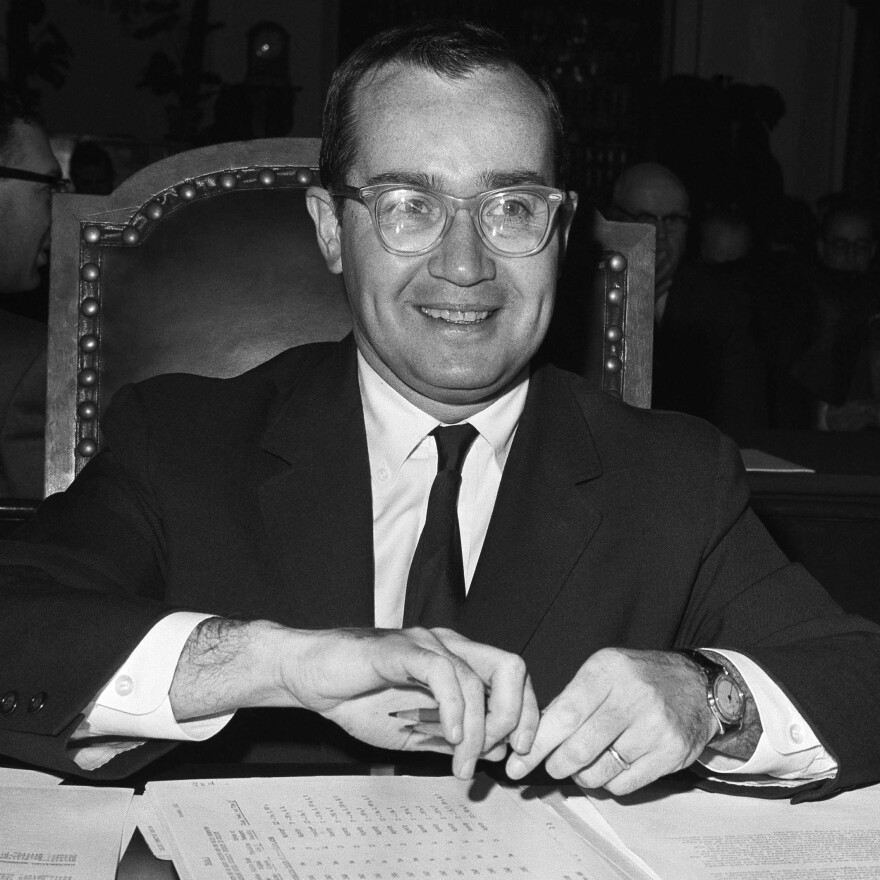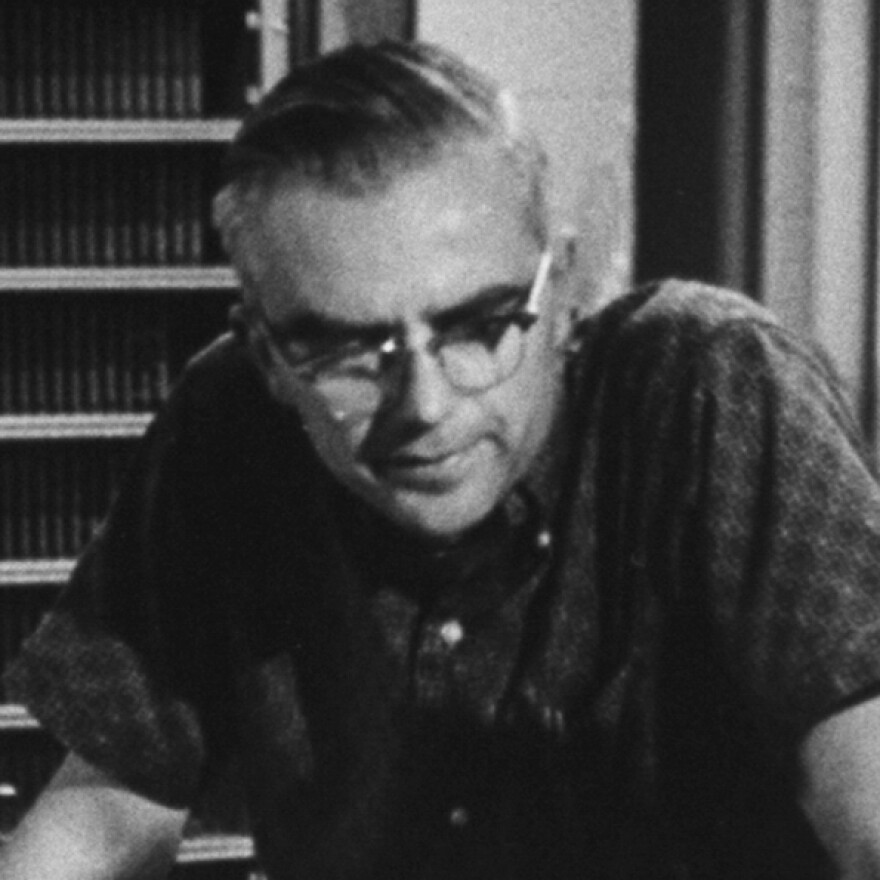Note: A shorter version of this story aired on your local member station.
Fifty years ago this month, Life magazine published its take on the 100 most promising young professionals of the midcentury. The special issue, titled "The Take-Over Generation," highlighted some of the "young movers and shakers of the country," Roy Rowan, the magazine's assistant managing editor at the time, tells reporter Richard L. Harris.
Rowan recalls searching for young people "who were innovative and doing new things and might have a real impact on the world."
Rowan and his team whittled the list to 100 politicians, writers, scientists and businessmen. And they were mostly men — only nine women and a smattering of minorities made the list.
"The glass ceiling was pretty solid in those days, and it was very, very hard for women to get into leadership roles," Rowan says. He says a current list would be a much more diverse group. "It wouldn't be this lily white list at all."
Most of those profiled in "The Take-Over Generation" were in their 20s and 30s and just beginning to make a name for themselves. Some went on to become household names, like authors Philip Roth and John Updike, and opera diva Leontyne Price.
Others, like Harold Brown and Pete Peterson, reached the power elite, becoming Cabinet secretaries, while Daniel Inoyue, now the most senior U.S. senator and chairman of the Senate Appropriations Committee, was described as "the first Oriental to serve in the House of Representatives."
Newton Minow, Martin Marty and Frank Drake all made "The Take-Over Generation." Each went on to become a powerful player in his respective field. The three men spoke with Harris about being selected, the life and times of the 1960s, and the world we live in today.

Interview Highlights
Chicago attorney Newton Minow, now 86, was profiled as the "outspoken new chairman of the Federal Communications Commission" under the Kennedy administration.
On his youth at the time he was appointed
A week before President Kennedy had appointed me, I had been turned down for a position on our local suburban library board because I was too young.
On recommending legal intern Barack Obama for a fellowship two decades ago
"I had not said he'd become president, but I did recommend him for a fellowship, and I said he's going to become one of the most important people in the country. So I never thought at that time that he would be president, but I knew that he would be exceptional."
On how much the world has changed since 1962
This was before Vietnam, this was before Watergate, this was when people had more trust and faith in our institutions and our government. It was before all the cynicism had set in.
On his now-famous 1961 speech that criticized television as a 'vast wasteland':
"I'm afraid when I die the first words on my obituary will be 'vast wasteland' where I'd prefer they write about what we did to create public television, public radio, the communications satellite program, cheaper long distance telephone rates, cable, UHF. Those are the things that were important, rather than the two words 'vast wasteland.' "

Martin Marty, now 84 and a renowned religious historian, was described in the 1962 magazine as "a penetrating, outspoken critic of suburban church life in America."
On being selected for the magazine
"I'm a Nebraska country boy. You don't expect big things to happen. And a lot of things happened."
On the rate of religious participation in the United States in 1962
"I think about 47 percent of the American people said they were regular worshippers, and it's never been that high again. And it plunged during the '60s and gradually went down ever since."
On the dramatic increase in diversity in America in the past century
"In 1924, we clamped down on just about everybody who wasn't from Western Europe. In 1965, everything just changed. ... [Today] you constantly hear, 'We've got to take America back,' things like that. You're not going to take America back, because there are too many Americas out there now."

In 1962, Life described Frank Drake, now 82, as "one of the First Americans to get a Ph.D. in radio astronomy." Today, he's chairman emeritus of the SETI (Search for Extraterrestrial Intelligence) Institute.
On the national passion for space exploration in the 1960s
"Sputnik had been launched; the Space Age had begun. And that opened people's eyes to the idea that there are other worlds out there that we might visit."
On changing attitudes about the possibility of extraterrestrial life
"One of the things that has most impressed me these last 50 years is how the minds of people on Earth have changed on the subject of intelligent life in space.
"Back in the 1960s it was a taboo subject. In a few decades, we should be doing searches that actually have a chance to succeed. I'm afraid I won't have a chance to see that, but within the next hundred years, a lot of humans will."
On his surprise at being selected for 'The Take-Over Generation'
"I was very young and not very well-established, so I thought they were ahead of time anointing me with this honor."
Copyright 2021 NPR. To see more, visit https://www.npr.org.



